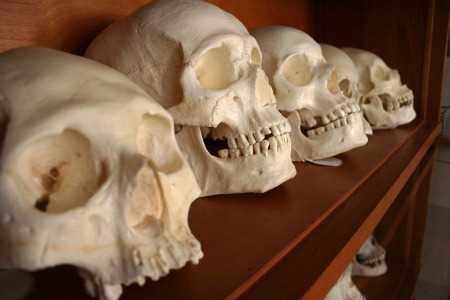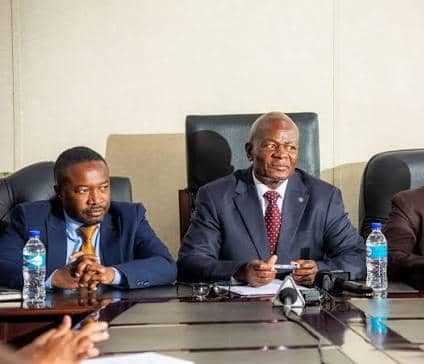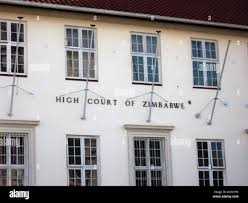
Edmore Zvinonzwa
Zimbabweans are calling for the return of human skulls being displayed as artefacts in foreign museums for decent burial. They also want the museums to unconditionally return all cultural pieces looted during colonialism.
The comes after Britain agreed to return some artefacts to Nigeria and Germany has returned some to three African countries.For 70-year-old Timothy Muvhimi born in Mazvihwa near Zvishavane in the Midlands Province, there is no compromise. The British and other foreign nations must understand that human beings, even dead ones are not museum curios. Period.
“It is unheard of that people keep skulls of humans, whose cultures they do not understand, as well as other cultural objects for exhibition in museums and galleries out there in Europe. If I get a chance to go to the United Kingdom, the first thing I will do is to ask them to load the looted artefacts in my luggage,” said Muvhimi.
As calls get louder for the return of cultural artefacts stolen from African countries by European powers, particularly during and following conquests in wars that began in the nineteenth century, Zimbabwe has also joined the calls, arguing that these religious and cultural symbols of the people of this country must be returned.
Several voices are speaking up saying Britain and other western nations must not speak of human rights with one side of the mouth while blatantly denying long Africans ownership of what belongs to the continent.
Muvhimi is of the mind that although these might have been celebrations of conquest against the poorly armed African armies, keeping human skulls shipped as war trophies only serves to show that the former colonialists are still in superiority mode and still consider local people some sub-species rather than human beings of equal standing.
Muvhimi said the looting of human remains and cultural artefacts was a way of disempowerment as the physical items carries intrinsic power and the colonialists knew exactly what they were doing.
During the battles to colonise Ashanti, present-day Ghana, the then British Colonial Secretary Joseph Chamberlain claimed that if he could only get possession of the Golden Stool, he would be able to govern the country for all time.
The Golden Stool, which was the throne of Ashanti, was a symbol of Ashanti power and unity. The British had tried to take it but the Ashanti chose to have them put their last sovereign king, Prempeh I, into exile as opposed to surrendering the Golden Stool. Today, it is placed at the Ashanti Royal Palace in Kumasi, Ghana.
Chief Curator with the National Museums and Monuments of Zimbabwe, Kundishora Tungamirai Chipunza said that the spiritual significance of the artefacts cannot be understated.
“More than 2 000 archaeological and most probably more of enthnographic substance were looted from Zimbabwe during the colonial period to Britain alone and are now housed in state institutions as well as private collections.
“Similar numbers were taken to South Africa and a substantial amount of Rock Art record, including photos and reproductions were taken to Germany to the Loeo Frobenus Institute,” said Chipunza, adding that the looted objects included religious and spiritual objects which are damaging to the country’s wellness.
He argued that their return would complete the Zimbabwean story since gaps exist in the development story of the country which can be explained by the looted and missing objects.
Money matters
Related Stories
National Gallery of Zimbabwe Director Raphael Chikukwa said there is monetary value in these objects, which include archives, headrests, human remains and other cultural objects.
“We know that those refusing to return the objects are protecting the wallet and our government should know this.
“There is monetary value in these objects because they can boost cultural tourism as well as promote artistic and academic research if they are returned,” he said, adding that these objects belong to the African people and they deserve to be reunited with their own people.
The country could reap financial benefits, through tourist visits, research rights and other ways.
He added that right now locals have to travel and pay foreign museums to see their own heritage.
“One has to declare her/his parents to get a visa. Why should I travel to the west to research on my cultural heritage? If the West is genuine in order to heal colonial scars this is the time to do the right thing. The West must be reminded that cultural rights are human rights too and respecting these rights is to acknowledge the long and dark colonial injustices inflicted on the Africans,” said Chikukwa.
Chikukwa said our ancestors were good enough in creating these cultural goods and we, as descendants, are good enough to look after them now and forever. These are symbols of Zimbabwean history, religion, culture and values of the citizens of this country.
“Out there in the West, our objects are out of context and they still carry wrong names and meanings. Some of the objects are still relevant in our ceremonies and above all, we want decent burial for our human remains. The human and cultural genocide carried out during colonialism and the slave trade needs redress,” he said.
Zimbabwe is currently hosting an art exhibition of works by its own citizens that is on loan. Some commentators have said that there is silence on whether the artists, some of whom who were learners at Cyrene ever received fair payment for the works or any royalties from the proceeds of almost 30 years on tour and the subsequent sale to a private collector.
Western mindset shift needed
“We need to change the mindset of the western world which holds itself superior on issues such as decency, honesty, human rights and even the fight against corruption. People in South Africa talk about (former president) Jacob Zuma and Nkandhla as the height of corruption but no one has bothered to question the wealth than was in Queen Elizabeth’s 30 palaces… there are things that were taken from India and other places in the world,” said former Chef Executive Officer of the Zimbabwe Media Commission (ZMC) Dr Tafataona Mahoso.
He said the failure of African governments to get restitution has mainly been caused by the deliberate creation of the wrong view of 500 years of western civilization.
He added that there are many African military leaders’ heads that European colonialists took away, citing the example of the head of Chief Bambatha of the Zondi clan who was decapitated following defeat in the 1906 war over a poll tax that had been imposed by the Natal colonial government.
“By transferring the artefacts, it will wake people up to the barbaric acts that were committed by these people. The first thing though is recognition. They took body parts of people and that is akin to causing Ngozi in the African context and Ngozi does not expire,” Dr Mahoso added.
Because the issue involves almost all African states, the African Union has put the return of looted cultural property and other items on its agenda with the aim of formulating a common policy since African governments have been struggling for restitution for years.
Bare faced arrogance must be challenged
Ethiopians are literally having to beg for their artefacts lodged in British, Italian and Belgian museums.
There has even been a queer suggestion that Ethiopia could get these on loan for a specific period of time and then return them to Europe.
The British for now have decided to evade moral obligation that lies with the looting nations, resting on legal processes the British have claimed they have to follow in getting the artefacts back to Zimbabwe and other African countries.
Under the leadership of Liz Truss who has openly said that Britain should stop being embarrassed by its colonial past, there is need for more proactive demand for the return of human remains and artefacts because the bare faced arrogance is not going away any time soon.



















Leave Comments